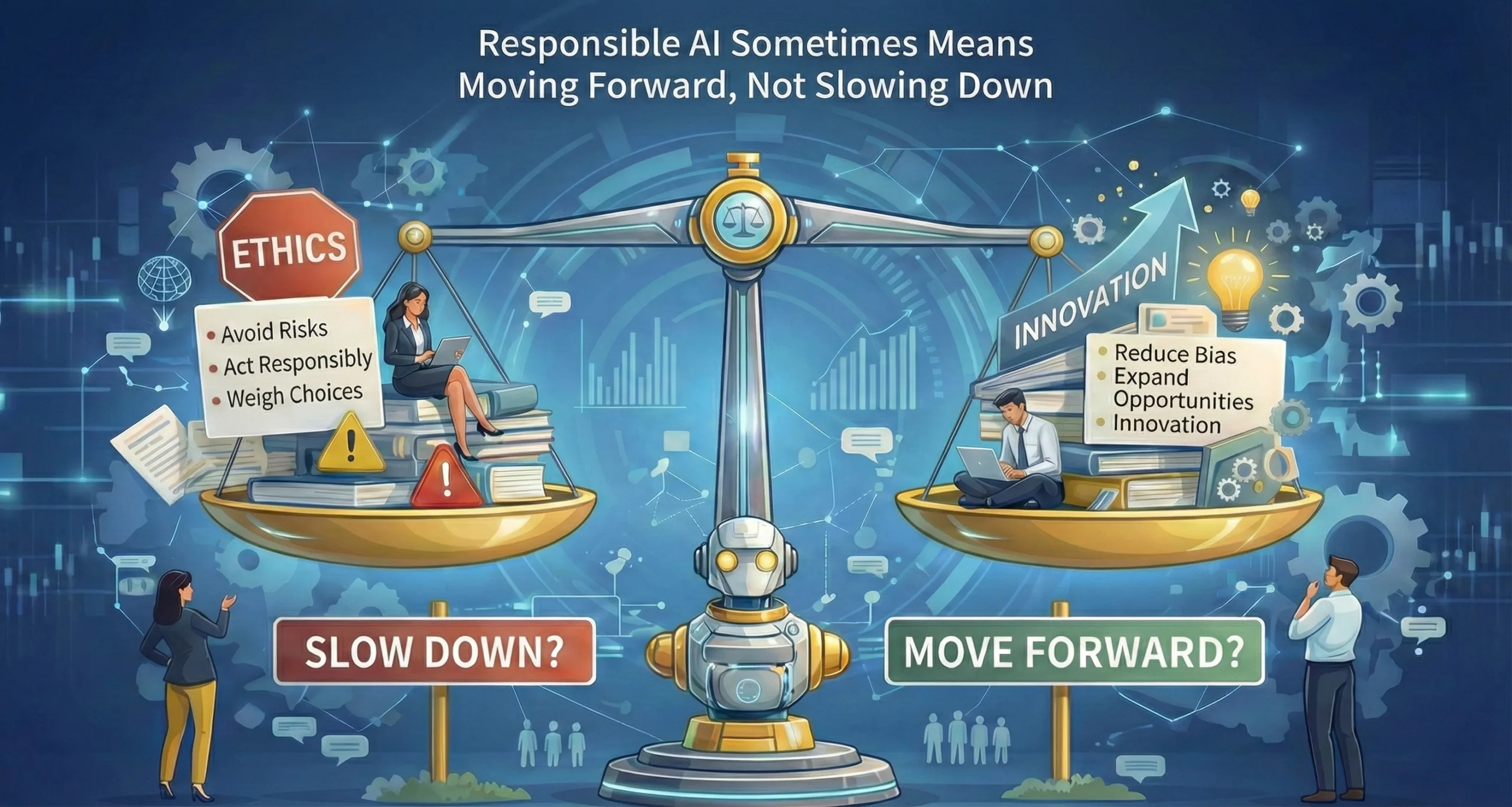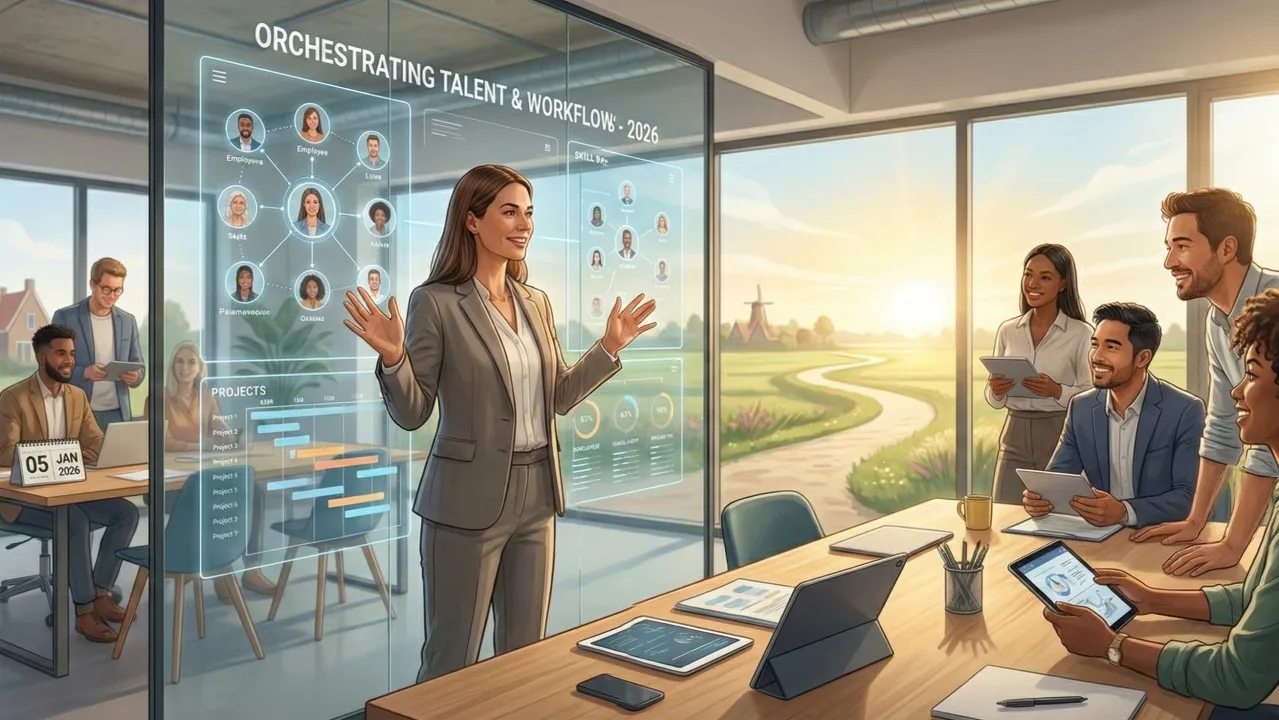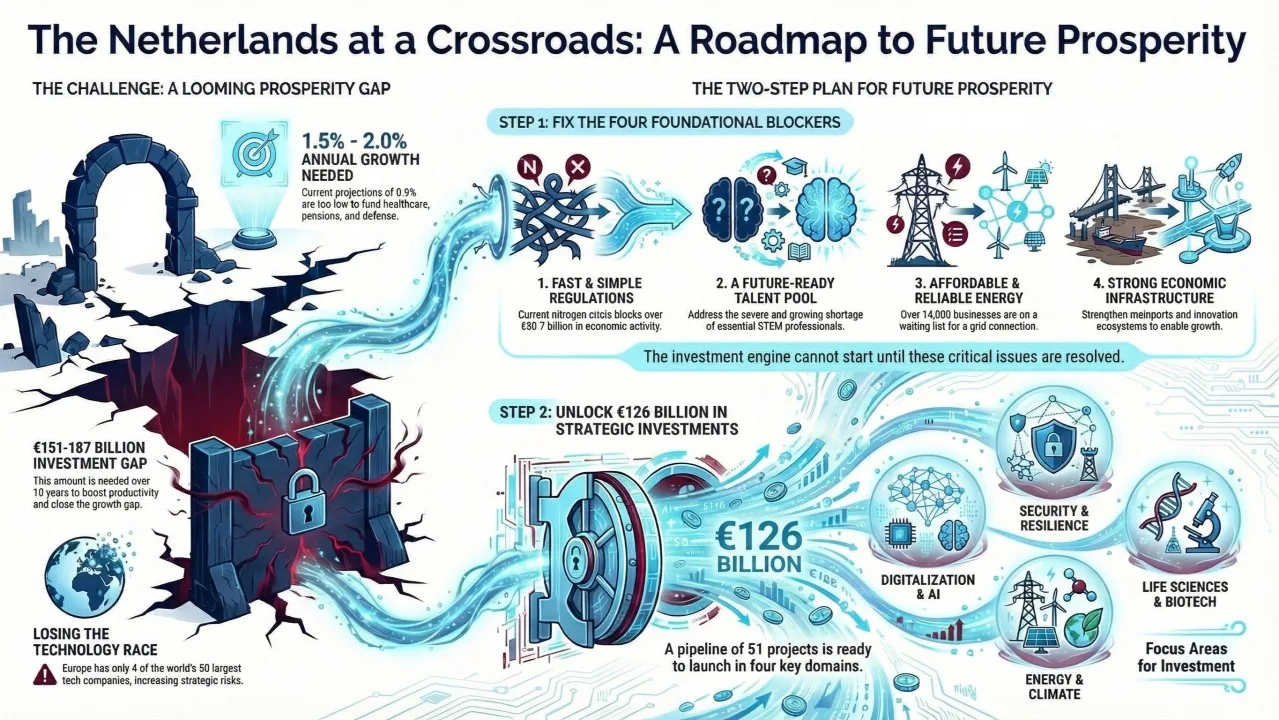Who is really meaningfully engaged in solving our ecological and societal challenges? There is such a large group working in bullshit jobs or unable to participate meaningfully, that we are missing a tremendous amount of labor capacity. Trapped in our own systems. What would happen if we unlock this potential? Can we do that before collective burnout? Or should we just dive straight into that wave? Curious to hear your thoughts on this! #thrivability #sustainable employability #burnout
Explanatory text when published on LinkedIn
Who takes the time to look around working and non-working Holland frowns. What are we all doing? Just black and white: a large group of people are extremely busy and another large group is not participating (anymore). Both groups complain and feel like victims of a self-created system. You work harder and harder, for an increasingly expensive life; or you feel lonely, dependent and excluded. On top of that, we are becoming aware of a major social and ecological crisis; but in practice, only a small third of us actually know how to meaningfully engage in it. The combination of the “rat-racers,” the “excluded” and the “collapse anxiety,” are the ideal cocktail for collective burnout. Who or what is going to save us?
Up front: burnout may be exactly what is needed….
I myself experienced considerable burnout two years ago. I was in bed 20 hours a day, and had no energy for a walk or a book. Fortunately, my burnout lasted only a few months. I was fortunate to be able to completely isolate myself in vacation homes offered by my network. After a few weeks offline, a nature swim and stopping all my social and work-related activities, I recharged. I had overcome my greatest fear (being alone). I am now rebuilding my life with choices not based on fear.
It’s going too far to say that I wish burnout on everyone. It’s a dark painful tunnel, and many never really come out of it. But it can certainly give you a lot in life. Even before I went into burnout myself, I realized that it’s nice working with people who have overcome a crisis in their lives. They know deep down that you achieve more by completely accepting that world is different than the head likes, than by working hard. These people enjoy more, are more agile and get to the core better. They embody the essence. They shine and achieve impact.
We keep ourselves collectively meaningless
Unfortunately, today’s employees do not shine at all. These ‘rat-racers’ are more powerful than ever – never before has turnover and the average annual wage growth (7.6%) been so high – but are under the stress of hard work. Due to downtime, the workload in the workplace is extremely high. Nor is this hard work very useful. Despite the many innovations, our productivity is hardly increasing and work weeks are not getting shorter. A large part of the population works in bullshit jobs: they don’t add anything meaningful to society at work, perform tasks that could be better done by AI, or are so occupied with solving problems that they only get bigger. Take for example the 17 billion that we are spending to solve 3 billion in debt. The revenue model of a large group is to (maintain) the problems of a small group of poor.

At the same time, another part of the population is also stressed because they cannot make ends meet, cannot participate, and see gaps with the rich widening. After the U.S., the Netherlands is the country with the largest income inequality. Apparently, the untapped labor potential of all those homeschoolers cannot be used to reduce the workload of “rat-racers. Extraordinary, in these times of labor scarcity and unprecedented digital opportunities to find each other, cut up and outsource knowledge work. See also my earlier blogs.
The vicious circle: only working harder seems to be the solution
The stressing groups have another fear hanging over their heads; that of ecological and societal collapse of our society. We realize that it will take even more than flight shaming and plant-based eating to stop depletion and climate change. And that we will not close the poverty gap with even more social services. Both require radical steps, such as a basic income and real energy transition. Theoretically, we have enough knowledge and capacity to make breakthrough transformations; but in practice, so many people are stuck in bullshit jobs or excluded from participation that they no longer (believe they can) contribute to the crises over our heads. As a result, a small group feels compelled to work even harder for change. Again: working even harder.
The consequence of structurally working harder (or too hard) is less oversight, more mistakes and a deeper belief that what you are doing is the only way out. Which in turn requires you to work harder to keep up with everything and fix mistakes. The worst is working hard without seeing results. I read somewhere that the greatest torment in penal camps is having to dig pits and plug them again and again. You cannot express more aptly the torment that many workers in bullshit jobs or in dysfunctional/unsafe organizations endure daily.
Trapped in a self-created system
There seems to be no way out for the hard workers, because the mortgage, because the luxury lifestyle, because the social status, because the work, etc. With underneath, the fear of being alone (or its variant, the fear of melting together / no longer having their own identity). Despite the bizarre amount of collective savings of all the Dutch, many are trapped in golden cages.

Are we then left with nothing but collective burnout? It seems so. Will there be a new generation of politicians who will do things differently, now that the old guard is ‘burned out’? Will there be new education and care personnel who will make demands on the way the system is organized? Will there be civil servants who make government agile? Will employees quit in companies that do not have a positive social or environmental footprint? In Buddhist wisdom, the way-out, is often the way-in. Perhaps we should not fear collective burnout, but go the extra mile? Try harder all of you!
New leadership dare not know
No. No matter how much wisdom that burnout gave me. You don’t begrudge anyone the pain and panic you’re going through. Certainly collectively, if there is no one to give direction in the chaos, this does not seem to me to be a healthy development for BV Nederland. So I remain positive, and look forward to new leadership. Leaders who dare to let go vulnerably and don’t know. See who throw open the dialogue and search together for new answers. While inwardly convinced they lead the way to less prosperity, but more well-being. I do my best, as with this blog, but I don’t know either. What would you and I do best right now? I look forward to your suggestions on LinkedIn!



